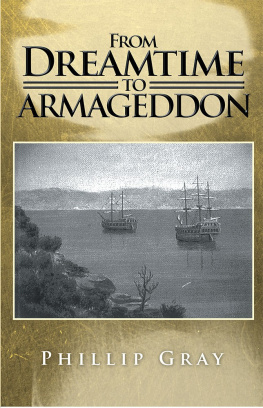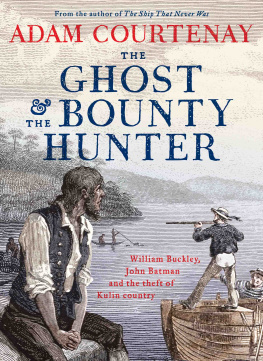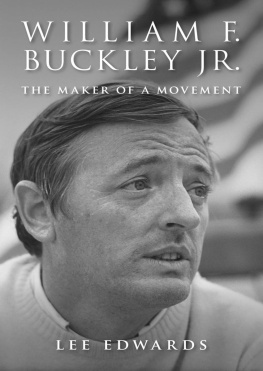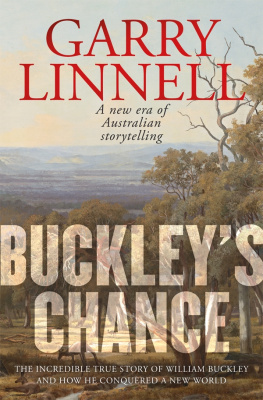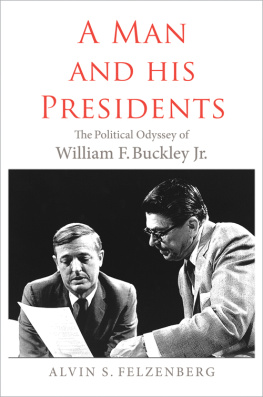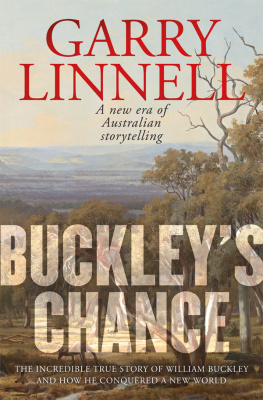FROM
DREAMTIME
TO
ARMAGEDDON
Phillip Gray

Copyright 2018 Phillip Gray.
Interior Graphics/Art Credit: Roland Schicht and Richard Clark
All rights reserved. No part of this book may be used or reproduced by any means, graphic, electronic, or mechanical, including photocopying, recording, taping or by any information storage retrieval system without the written permission of the author except in the case of brief quotations embodied in critical articles and reviews.
Balboa Press
A Division of Hay House
1663 Liberty Drive
Bloomington, IN 47403
www.balboapress.com.au
1 (877) 407-4847
Because of the dynamic nature of the Internet, any web addresses or links contained in this book may have changed since publication and may no longer be valid. The views expressed in this work are solely those of the author and do not necessarily reflect the views of the publisher, and the publisher hereby disclaims any responsibility for them.
The author of this book does not dispense medical advice or prescribe the use of any technique as a form of treatment for physical, emotional, or medical problems without the advice of a physician, either directly or indirectly. The intent of the author is only to offer information of a general nature to help you in your quest for emotional and spiritual well-being. In the event you use any of the information in this book for yourself, which is your constitutional right, the author and the publisher assume no responsibility for your actions.
Any people depicted in stock imagery provided by Getty Images are models, and such images are being used for illustrative purposes only.
Certain stock imagery Getty Images.
ISBN: 978-1-5043-1373-5 (sc)
ISBN: 978-1-5043-1374-2 (e)
Balboa Press rev. date: 07/09/2018
Contents
Some of this story is fiction. Some of it is fact.
I will leave it up to the reader to determine which is w hich.
I would like to express my unreserved thanks to Uncle David Tournier (now deceased) the past Indigenous Cultural Language Co-Ordinator and Education Officer, as well as to Trevor James (Reg) Abrahams the Cultural Heritage Officer of the WATHAURONG ABORIGINAL CO-OPERATIVE LTD, both of whom gave me their support and their permission to use certain information in this book pertaining to the Wathaurong culture.
Signed, the Au thor.
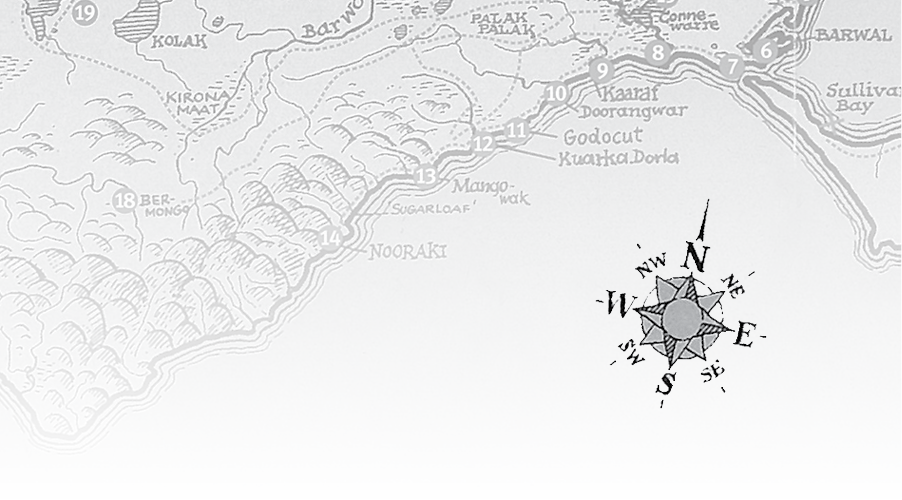
A lthough fifteen years had passed since the First Fleets arrival at Botany Bay, the French were still showing more than a passing interest in that vast southern continent in spite of the British presence there. So with further expansion of the fledgling colony now becoming a pressing priority, the British powers-that-be based in Sydney commissioned Acting Lieutenant John Murray to explore the countrys southern coastline to try to find a suitable location to help bolster Britains position. As a result, Murray set out from Sydney in the Lady Nelson in November 1801 with a crew of fifteen, before going on to discover what would eventually become known as Port Phillip Bay, where he raised the Union Jack high upon a bluff at the site of present-day Sorrento.
Meanwhile, back home in England where another shipment of convicts was being prepared for dispatch to New South Wales, word arrived of the forests of valuable timber said to be growing in abundance around the shores of this new location, and after a hasty meeting of those in authority, it was decided that a second convict colony should be established there.
With Colonel David Collins appointed to the role of Lieutenant Governor, those mustered together to form the new colony were to make the journey out from England in two British vessels: The first ship Calcutta was commissioned to carry 307 convicts (including some of their wives and children) along with 50 royal marines and Governor Collins with his civil staff, while the second vessel Ocean would carry a few free settlers and the settlement stores. However, after dropping anchor in a sheltered Port Phillip Bay cove in October 1803, it soon became apparent that the soil was too poor to farm and that the region lacked fresh water, so not wishing to prolong what he quickly came to regard as a sorry mistake, Collins wasted no time in seeking permission to relocate the settlement to Van Diemens Land. Approval was granted a short time later and the move got under way.
Although the Sullivan Bay settlement lasted little more than a few short months, during that time a number of convicts managed to escape into the bush.
One of these men was William Buc kley:
Born in Cheshire England in 1780 and raised by his maternal grandparents in nearby Macclesfield as soon as he was old enough to make his own way in the world, Buckley served an apprenticeship in the bricklaying trade, before leaving home at the age of nineteen to enlist in the service of the Kings Guard.
Becoming a formidable presence as he grew into manhood, he towered over his fellow soldiers at a lofty 6 feet 8 inches when the average height of British men in uniform was a mere 5 feet 6. However, it has long been said that the bigger they are the harder they fall, and after being wounded in action while fighting for his country in the Napoleonic wars, Buckley was repatriated back home to his native England. There is also a saying that idle hands are the devils workshop, and without the discipline of the Kings Guard to help keep him in line - along with the volatile combination of strong ale and loose women thrown into the mix - one sad and sorry night whilst trying to impress a lady to whom he had taken a fancy, Buckley and one of his friends were caught stealing two bolts of cloth in an act of drunken bravado, and were sentenced to transportation for the rest of their lives.
The following story is what happened next:

CHAPTER 1
13 Th OCTOBER 1803
H ere I stand a whole world away from the place I call home, and though the sight of these tree-lined shores seem pleasant enough to the eye, they are not the cliffs of Dover. Having finally dropped anchor after many long months at sea, we are lying a quarter mile offshore alongside our sister ship, while I gaze at a shoreline of golden sand and upon hills of rolling green. As I was given the role of man-servant to the governor on the journey out from England, I am the only prisoner fortunate enough to be not currently locked below, while all other able-bodied men have been put to work unloading the ships until it is deemed safe to take the rest of us unwilling guests of His Majesty ashore. As I pause to reflect upon those past few months at sea - when I compare it to the months that I had previously spent in the disease-ridden hulk of the Portland (where many of the prisoners were dropping like flies) my journey down to this southern land has been more like a picnic. As far as my role as man-servant was concerned, I will let you in on a little secret - I was often given the liberty of assisting the crew with their chores up on deck whenever our commander had seen fit to entertain a certain lady (the wife of one of our fellow-prisoners) alone in his cabin.
And now that the governor has gone ashore to oversee the landing, I have been able to linger here alone and unattended, smelling the warm sea air and watching those on the beach busying themselves like ants upon a crust of bread. But please do not judge me as one unsympathetic to those poor wretched souls below, for I have shared their chains of iron and have also felt the lash, its just that on this occasion I am the lucky one and have slipped through the net.
Next page
